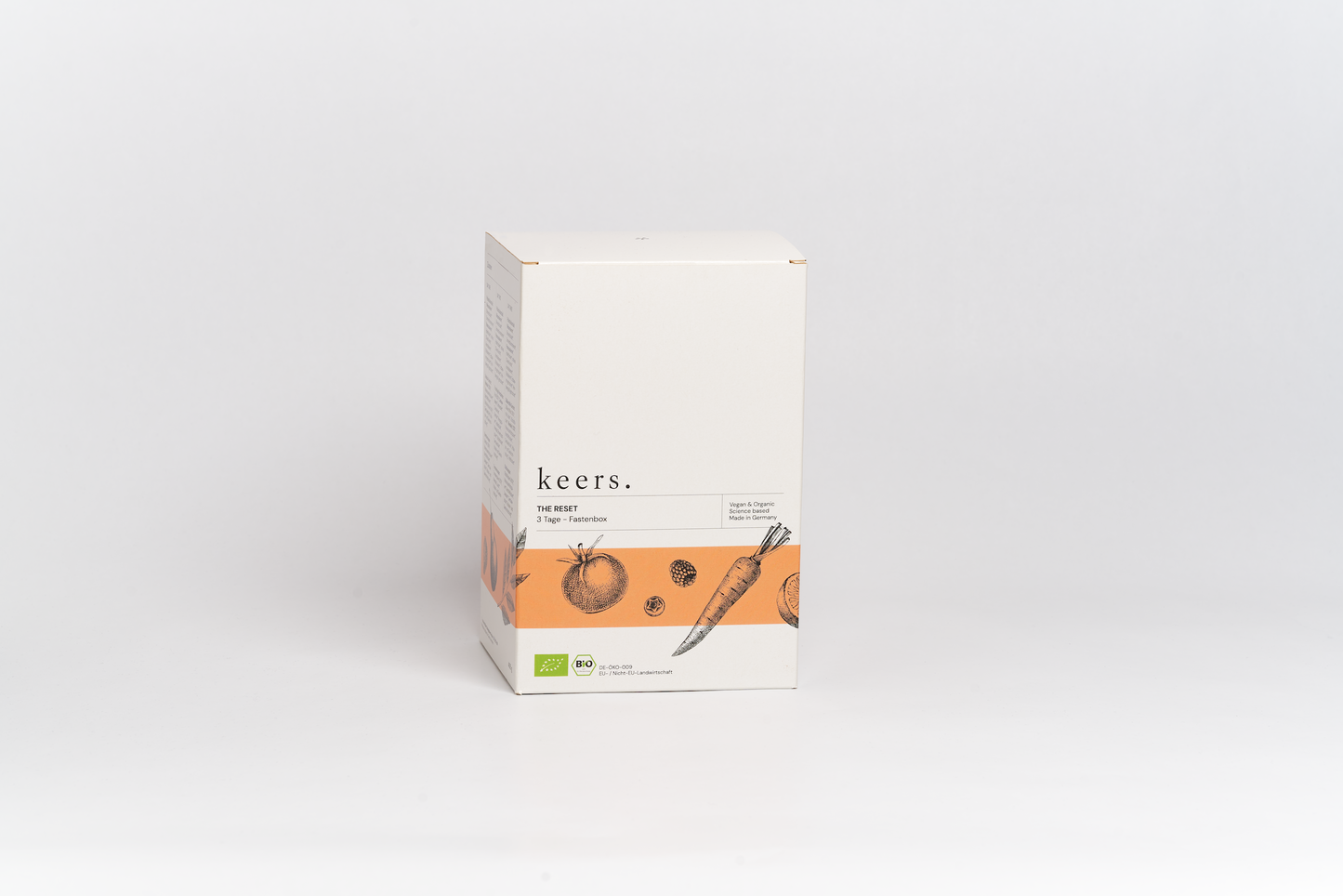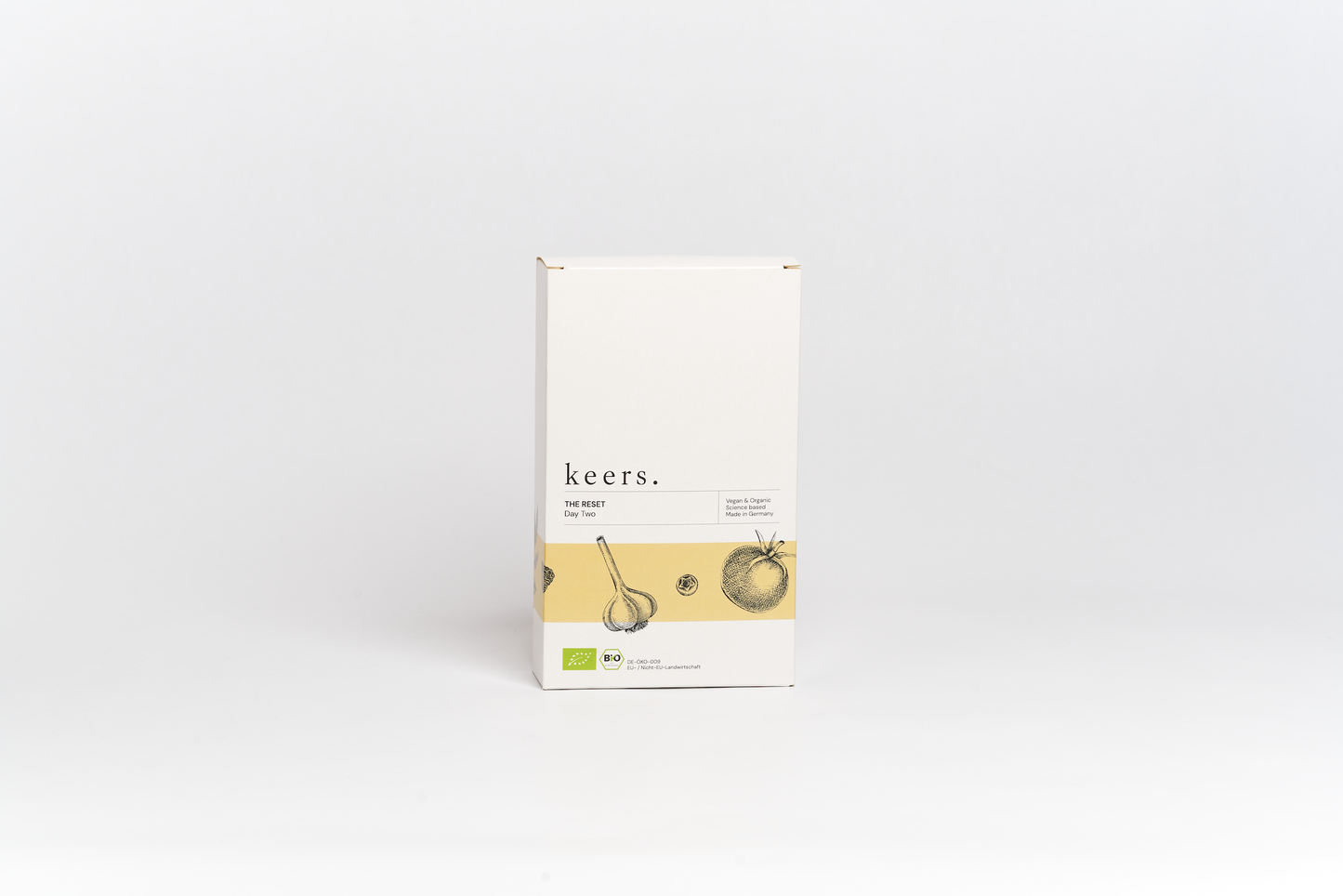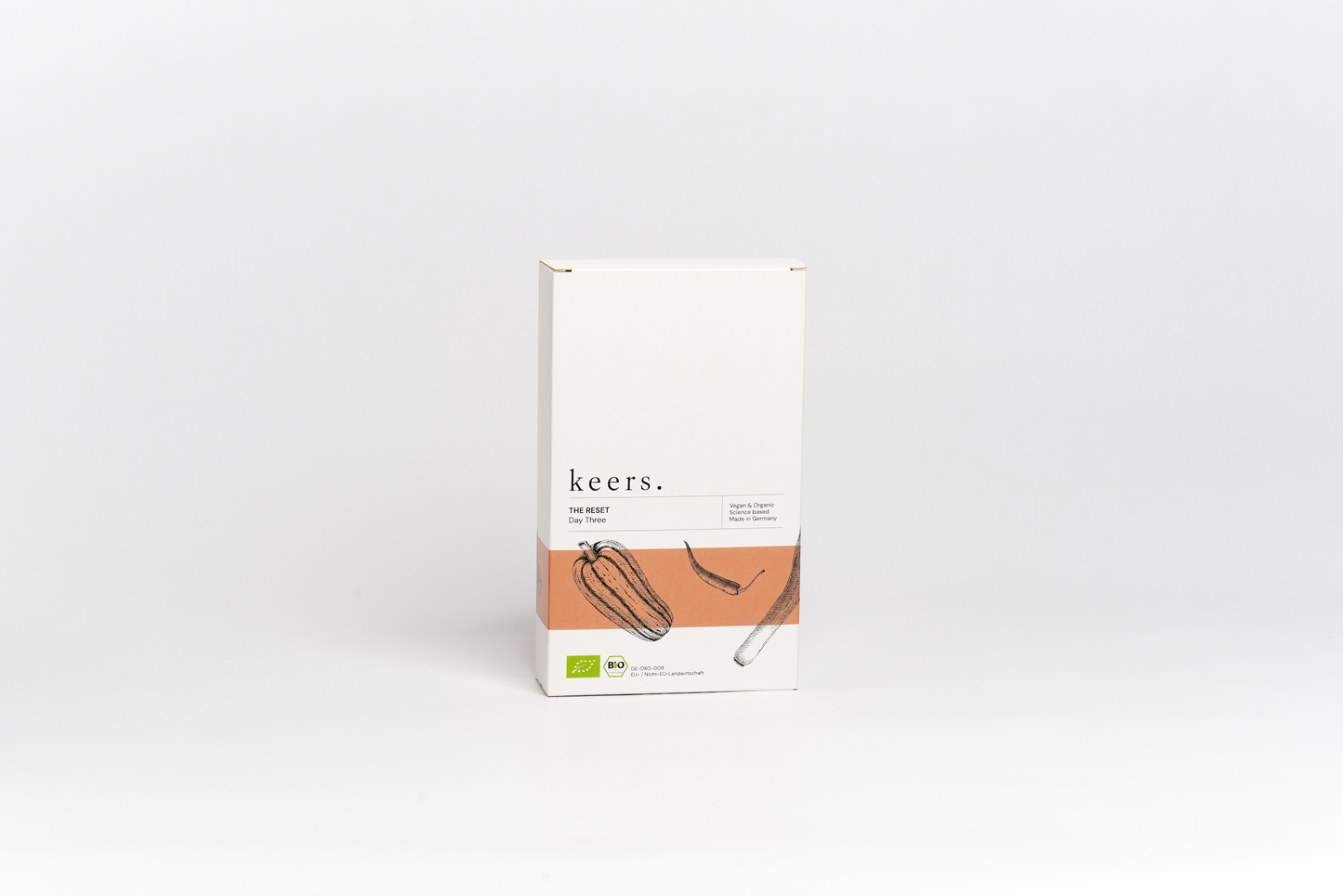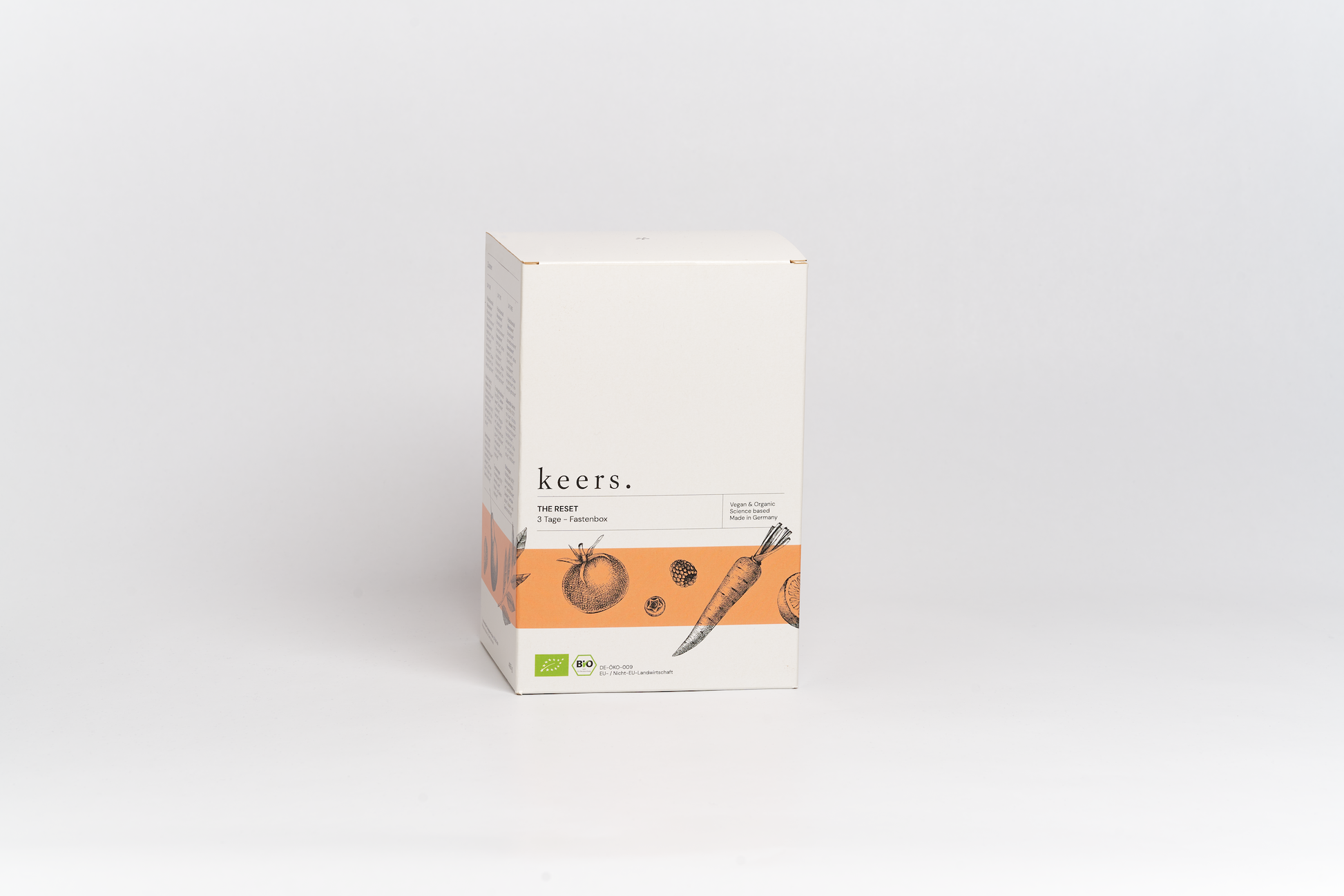Science behind
autophagy
“Autophagy” comes from ancient Greek and means “to consume oneself”. This term describes a process in our body cells , in which they break down and utilize their own components, it is a matter of natural cell renewal, cell cleaning and cell regeneration.
After Christian de Duve discovered the phenomenon in 1963, the Japanese scientist Yoshinori Osumi researched the effects and functionality of autophagy in the 1990s and received the Nobel Prize in Physiology in 2016 for his discoveries.

In the process of autophagy, damaged cell structures are recognized and eliminated by
be broken down into small building blocks. These blocks can then either
be reused or eliminated through metabolism.
Autophagy plays an important role in the regulation of energy, cell growth and cell development. Also, it helps in removing damaged and faulty ones
Proteins and organelles that can be detrimental to cell function.
Accordingly, autophagy is an essential mechanism that (preventively)
keeps healthy. It plays a central role in diseases such as cancer, Parkinson's and
Diabetes.
When does autophagy take place?
Autophagy always takes place from birth. This is how our organism
sure that we are healthy and (hopefully) free of disease.
If you want to use the phenomenon of autophagy to your advantage and for your
To benefit health, it is advisable to “undergo” complete autophagy.
The time required for a complete cleaning of the cells by autophagy has not yet been scientifically clarified.
However, it is known that the processes are primarily triggered by a constantly low insulin level. [1]

If the blood sugar level and accordingly the amount of insulin in the blood remains for a longer period of time
Period low, the body is being signaled that it is due to a lack of energy
must draw energy from its reserves.
If this is the case, the body first accesses its glucose stores in the muscles and liver
return. If these are used up and you continue to supply the body with no external energy
(eating), the body begins to use the energy reserves in the fat cells.
It is assumed that in the course of this reserve consumption, autophagy occurs
after about 18 hours at the latest. For a "complete cleaning", i.e. the development of the
full effect of autophagy, the body requires a constant insulin low over a period of time
Period of approximately 48 to 72 hours. (2-3 Days)
How can autophagy be stimulated?
Summarizing what has been said so far, we can state the following:
Autophagy is an ongoing process in our body, and being in a severe calorie deficit for an extended period of time makes full autophagy possible.
This makes it clear that fasting is a good way to stimulate autophagy.
To this day, science does not agree on how long a fasting cure should last in this sense. It certainly varies from body to body. Some studies have shown that even intermittent fasting can stimulate the body's cleansing process. However, it does not allow for complete autophagy. [2]
Others describe that a fasting period of 2-3 days has the best effects: The stress on the body is not as great as with longer fasting, but the autophagy processes can be longer and more extensive than with intermittent fasting of 16 hours.
But there's good news: You don't have to go on a zero diet to stop autophagy
to boost. You can eat up to 600 kcal a day and still get the ones you want
achieve results. So you don't have to starve and at the same time you can regenerate cells
stimulate.
There are also foods that have a stimulating effect on the self-cleansing
processes of the body. According to the latest scientific findings is special
the biogenic polyamine spermidine is involved in the processes. This is done by the body itself
produced, but can also be found in food. These include cheese, soybean sprouts, mushrooms
and wheat germ. [3]
[1] Ribeiro, M.; Lopez de Figueroa, P.; [...]; Caramés, B. (2016), Insulin decreases autophagy and leads to cartilage degradation, Osteoarthritis and Cartilage, Volume 24, Issue 4, p. 731-739, https://www.sciencedirect.com/science/article/pii/S1063458415013709.
[2] https://www.medizin.uni-halle.de/news/benefits-of-interval-fastens-fuer-herzinfarkt-patientinnen-und-patienten
[3] https://spermidine.health/autophagie/
keers.
THE RESET
shares







